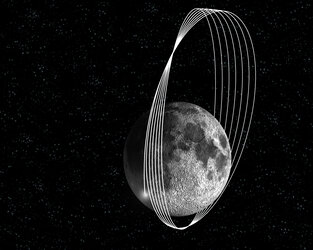Accept all cookies Accept only essential cookies See our Cookie Notice

About ESA
The European Space Agency (ESA) is Europe’s gateway to space. Its mission is to shape the development of Europe’s space capability and ensure that investment in space continues to deliver benefits to the citizens of Europe and the world.
Highlights
ESA - United space in Europe
This is ESA ESA facts Member States & Cooperating States Funding Director General Top management For Member State Delegations European vision European Space Policy ESA & EU Space Councils Responsibility & Sustainability Annual Report Calendar of meetings Corporate newsEstablishments & sites
ESA Headquarters ESA ESTEC ESA ESOC ESA ESRIN ESA EAC ESA ESAC Europe's Spaceport ESA ESEC ESA ECSAT Brussels Office Washington OfficeWorking with ESA
Business with ESA ESA Commercialisation Gateway Law at ESA Careers Cyber resilience at ESA IT at ESA Newsroom Partnerships Merchandising Licence Education Open Space Innovation Platform Integrity and Reporting Administrative Tribunal Health and SafetyMore about ESA
History ESA Historical Archives Exhibitions Publications Art & Culture ESA Merchandise Kids Diversity ESA Brand Centre ESA ChampionsLatest
Space in Member States
Find out more about space activities in our 23 Member States, and understand how ESA works together with their national agencies, institutions and organisations.
Science & Exploration
Exploring our Solar System and unlocking the secrets of the Universe
Go to topicAstronauts
Missions
Juice Euclid Webb Solar Orbiter BepiColombo Gaia ExoMars Cheops Exoplanet missions More missionsActivities
International Space Station Orion service module Gateway Concordia Caves & Pangaea BenefitsLatest
Space Safety
Protecting life and infrastructure on Earth and in orbit
Go to topicAsteroids
Asteroids and Planetary Defence Asteroid danger explained Flyeye telescope: asteroid detection Hera mission: asteroid deflection Near-Earth Object Coordination CentreSpace junk
About space debris Space debris by the numbers Space Environment Report In space refuelling, refurbishing and removingSafety from space
Clean Space ecodesign Zero Debris Technologies Space for Earth Supporting Sustainable DevelopmentApplications
Using space to benefit citizens and meet future challenges on Earth
Go to topicObserving the Earth
Observing the Earth Future EO Copernicus Meteorology Space for our climate Satellite missionsCommercialisation
ESA Commercialisation Gateway Open Space Innovation Platform Business Incubation ESA Space SolutionsEnabling & Support
Making space accessible and developing the technologies for the future
Go to topicBuilding missions
Space Engineering and Technology Test centre Laboratories Concurrent Design Facility Preparing for the future Shaping the Future Discovery and Preparation Advanced Concepts TeamSpace transportation
Space Transportation Ariane Vega Space Rider Future space transportation Boost! Europe's Spaceport Launches from Europe's Spaceport from 2012Latest

Global Trajectory Optimisation Competition
Thank you for liking
You have already liked this page, you can only like it once!
Dizzyingly complex orbits charted across space as part of ESA’s winning entry in the last Global Trajectory Optimisation Competition. This international contest challenges the world’s best aerospace engineers and mathematicians to set the course of a space mission to solve a nearly impossible problem.
Popularly known as the ‘America’s Cup of rocket science’, GTOC-8 was won by past and present members of ESA’s Advanced Concepts Team thinktank. This victory gave them the right to devise and oversee this year’s challenge.
“The precise details of the new GTOC-9 competition will be kept under wraps until we formally launch it in the first week of April,” comments Dario Izzo, ACT scientific coordinator. “But we can already announce that this year’s competition will have one big difference: any interested group, company or individual will be free to enter.
“This is because it is being run through the ACT’s Kelvins website, a portal dedicated to hosting public aerospace challenges, which will enable automatic scoring of every entry we receive.”
Space may be infinite, but certain trajectories are much more efficient in terms of energy and time expended to perform particular tasks.
To give an idea of the type of challenge involved, GTOC-8 – as seen in the image above – asked participants to line up different spacecraft as efficiently as possible to perform ‘very-long baseline interferometry’: by precisely combining their individual observations through long-distance formation flying, to acquire an equivalent imaging resolution to a single, giant radio telescope.
This year’s GTOC will be based on a similarly complex yet practical space problem. For more information, click here.
-
CREDIT
ESA-ACT -
LICENCE
CC BY-SA 3.0 IGO or ESA Standard Licence
(content can be used under either licence)

Artist's impression of the final moment before impac…

Modelling galactic settlement

SMART-1 trajectory up to impact

Compact AIS antenna















 Germany
Germany
 Austria
Austria
 Belgium
Belgium
 Denmark
Denmark
 Spain
Spain
 Estonia
Estonia
 Finland
Finland
 France
France
 Greece
Greece
 Hungary
Hungary
 Ireland
Ireland
 Italy
Italy
 Luxembourg
Luxembourg
 Norway
Norway
 The Netherlands
The Netherlands
 Poland
Poland
 Portugal
Portugal
 Czechia
Czechia
 Romania
Romania
 United Kingdom
United Kingdom
 Slovenia
Slovenia
 Sweden
Sweden
 Switzerland
Switzerland
























